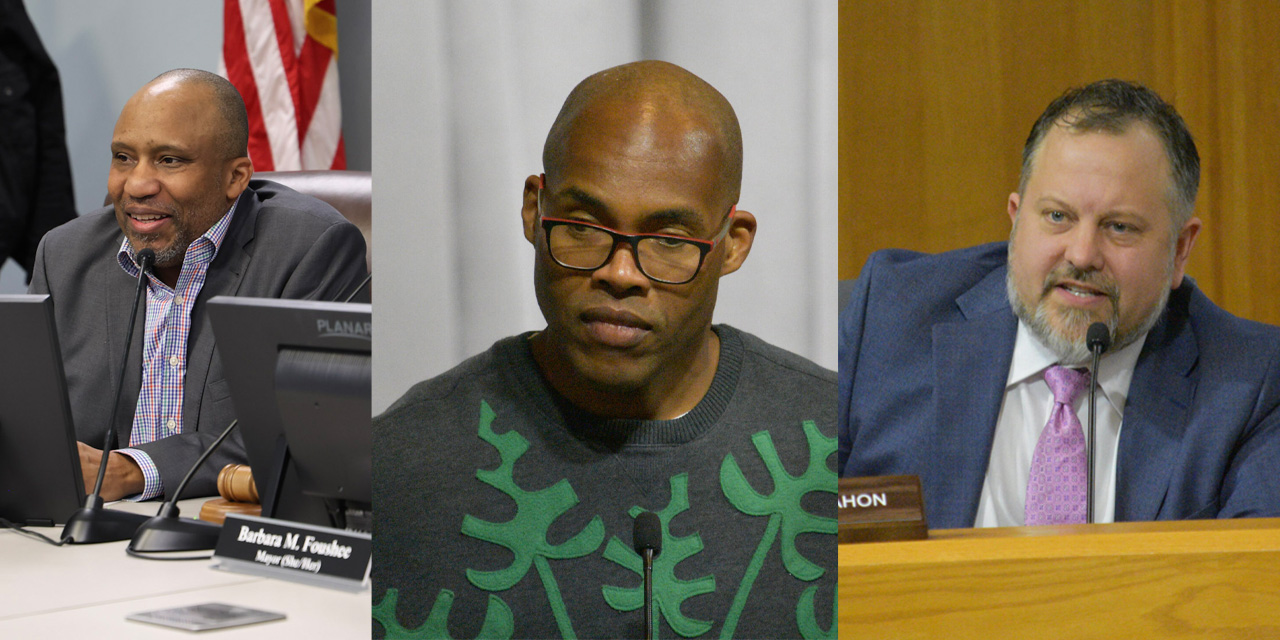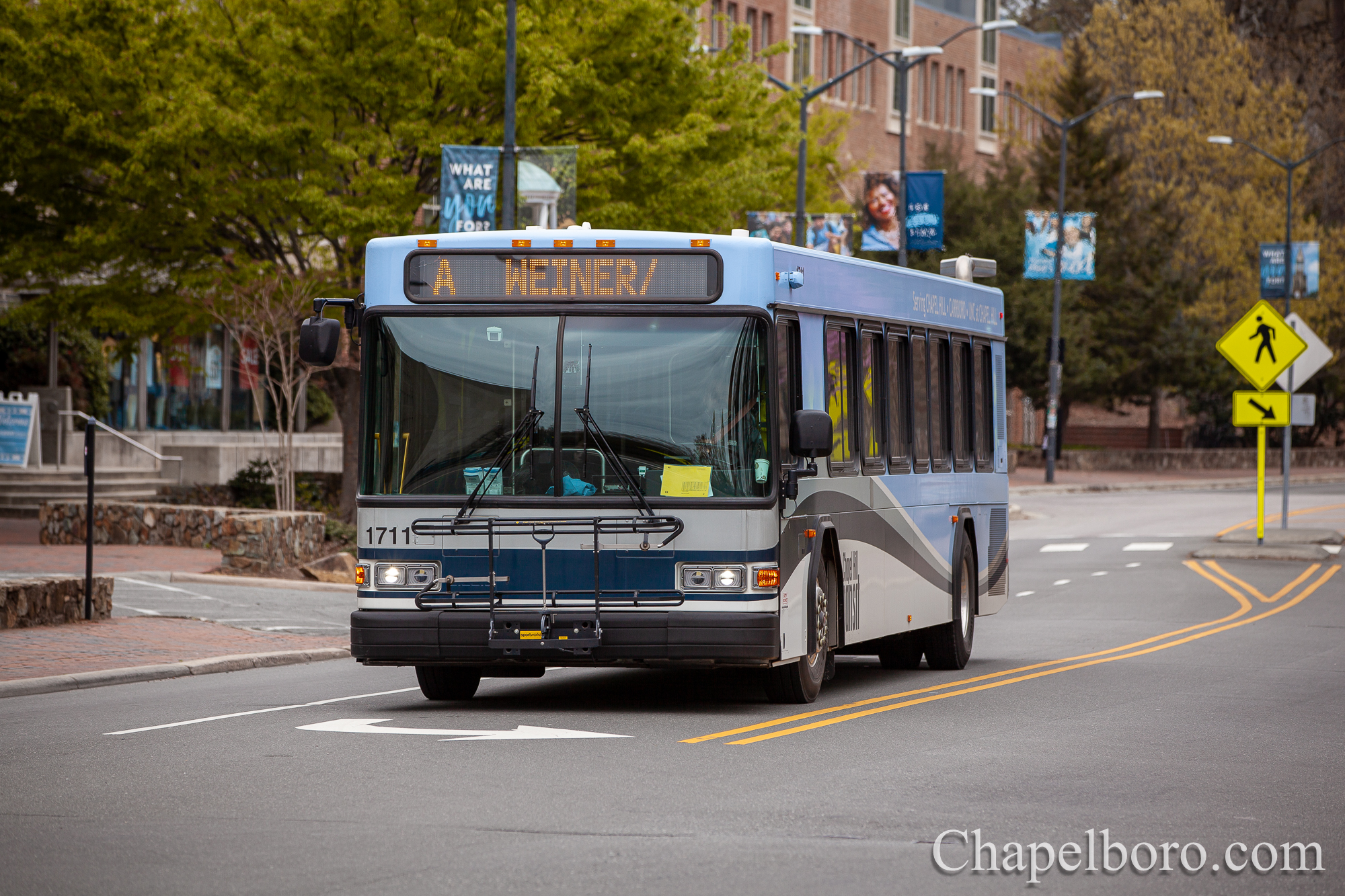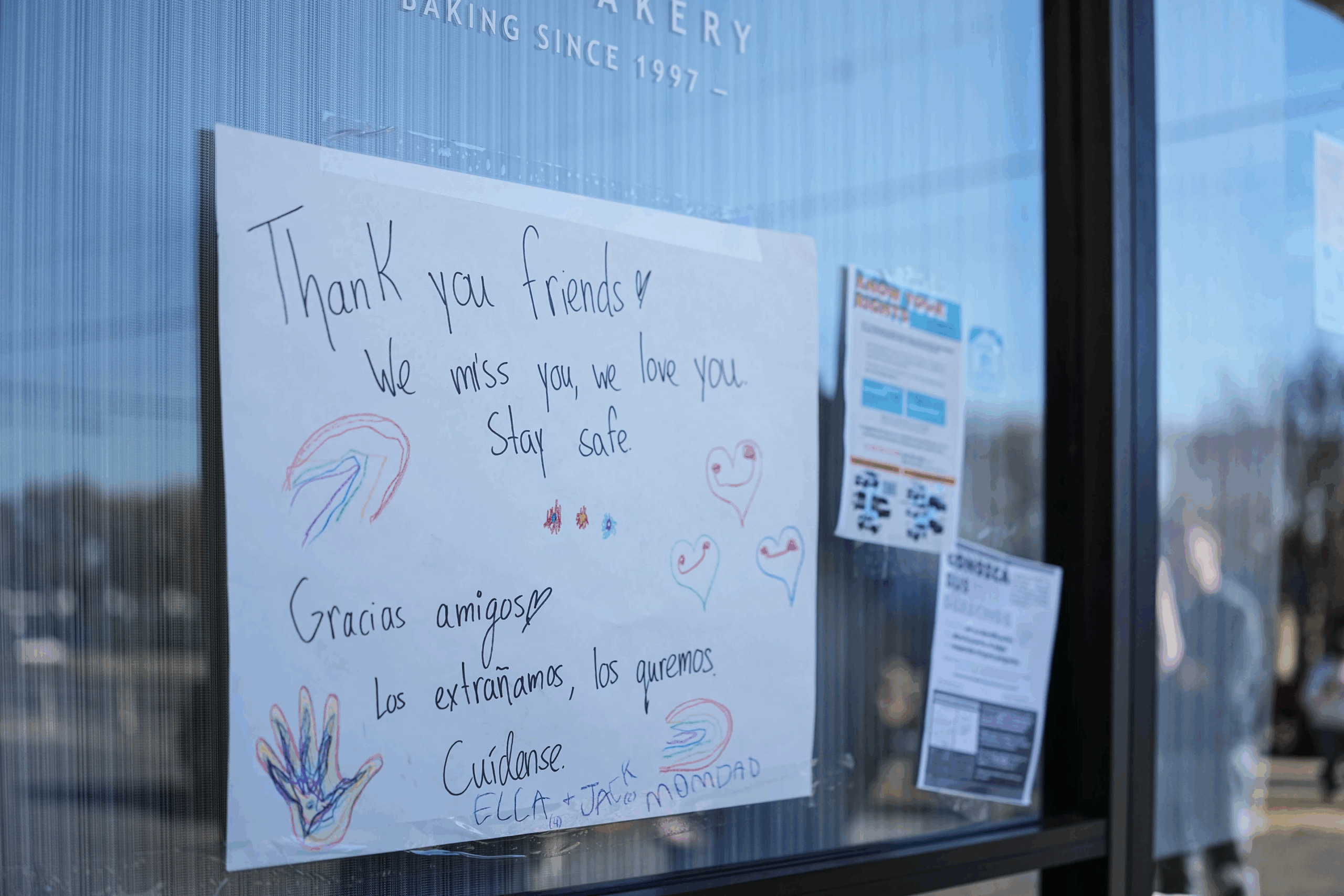Chapel Hill, Carrboro and UNC have agreed on a debt financing plan to add 10 to 15 new buses to start replacing a large portion of the current bus fleet which is past its useful life.
“Forty two of our 99 fixed-route buses are past their useful life,” said Chapel Hill Transit director Brian Litchfield. “The federal government puts 12 years on a fixed-route bus, 42 of our 99 are at least 14 years old, with our oldest around 21.”
The older buses require more time and money to maintain and can also be a safety concern.
Litchfield said some are so old that parts are no longer manufactured, so the town has to keep a few buses no longer in use to raid for parts.
“As our older buses have gotten older we’ve put more and more miles on our newer buses,” he said. “Some of our newest buses have miles on them for buses that are about twice their age.”
In order to help solve the problem, the Chapel Hill Town Council authorized the town manager to enter into an agreement with Gilling LLC, which enables the town to purchase up to 53 new buses, although it does not require the town to purchase any.
“These will generally be used to replace buses that are well beyond their useful life,” Litchfield said. “We’ll start replacing likely the oldest buses first. The only caveat to that would be any bus that has received a new engine or transmission would move down on that list.”
In a separate agreement, also approved by the council Monday, the town will contribute around $235,000 annually to help pay for 10-15 new buses, which Litchfield said will be determined based on the price of the buses. UNC will contribute around $444,000 and Carrboro will add around $83,000.
“We set up a cost-sharing arrangement that is based on the individual’s current contribution to the transit budget,” he said. “The university paying 58 percent, Chapel Hill paying 31 percent and Carrboro paying 11 percent.”
The council is also considering fuel efficiency for its new buses. The last group of buses purchased run on clean diesel, which Litchfield said emits just 5 percent of what the older buses did.
Councilman Ed Harrison said he wanted the town to conduct a study to look into more fuel efficient options.
Related Stories
‹
![]()
Chapel Hill: Transit News, Manufactured Homes and Celebrating UNC BasketballChapel Hill Mayor Pam Hemminger joins 97.9 The Hill's Brighton McConnell on Thursday, April 7 to share highlights from this week's town council meeting. She discusses two proclamations for the Chapel Hill community, as well as a dedication of a transit facility and early work to craft a plan for manufactured homes.
![]()
Chapel Hill Town Council To Talk Transit FundingThe Chapel Hill Town Council kicks off 2015 with a meeting on Monday to discuss future funding for the Chapel Hill Transit system.
![]()
New Buses Top List Of Chapel Hill Transit Budget NeedsBetween aging buses and funding cuts, Chapel Hill Transit faces budget challenges in the coming year.
![]()
CHTC Weighs Library and Transit Budget OptionsCHAPEL HILL- The Chapel Hill Town Council is considering a two-cent property tax rate increase to balance next year’s budget. Half of that would go to fund transit, which makes up about 20 percent of the town’s expenditures. Many on the council seem to support the plan, but at a budget work session on Monday, […]
![]()
CH Manager: Two-Cent Property Tax Rate IncreaseThe Council got its first look at next year’s budget proposal, which includes a tax increase to help fund the library and transit system.
![]()
CHTC Puts Park And Ride Fee Plan On HoldCHAPEL HILL- Although no vote was taken on Monday, the Chapel Hill Town Council made it clear: pay-to-park is coming to the park and ride lots. “I certainly have come to the conclusion that we need to implement this, said council member Jim Ward. “It is not something I would choose to do otherwise, but we need […]
![]()
Signs, Signs, Not Everywhere a SignCarolina blue buses are red. Wells Fargo is paying to wrap some of our buses in red to showcase its renaming of Wachovia. The town of Chapel Hill has sold the advertising space and is hoping to sell a lot more. Whether or not it dismays you […]

Chapel Hill, Carrboro Town Councils Swear In New and Returning Members to Close 2025The Chapel Hill and Carrboro town councils held their final meetings of the calendar year and used the time to both welcome new members elected in November and celebrate those departing elected office. The Carrboro Town Council’s swearing-in ceremony on Tuesday was incomplete, as returning council member Cristóbal Palmer was out sick. But […]

Thanksgiving Holiday to Affect Local Government Services in Orange County (2025)Thanksgiving will fall on Thursday, November 27 this year, and the holiday will affect several local government services around the Orange County community. Here’s a rundown of what residents can expect: Town of Chapel Hill Thursday, November 27 and Friday, November 28 are both town holidays. Residential trash collection will not be affected. However, there […]

Orange County Elected Officials Share Support of Local Families, Speak Out Against ICE RaidsElected officials in Orange County affirmed their support of immigrant community members and criticism of federal efforts that recently brought U.S. Immigration and Customs Enforcement officers and Border Patrol agents to North Carolina through a statement on Tuesday. As part of President Donald Trump’s administration’s policy goal to crack down on illegal immigration — and […]
›



